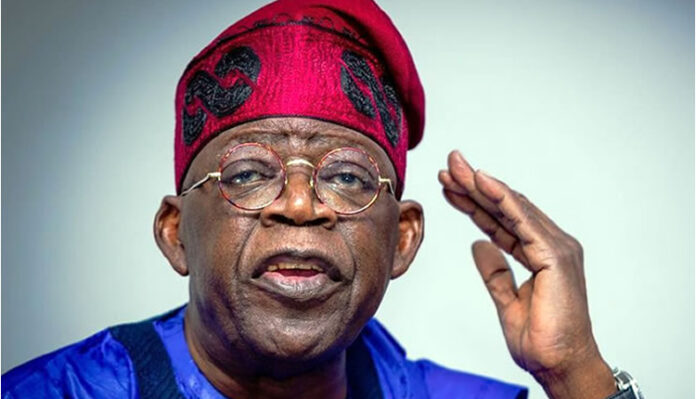LAGOS, Sunday, May 28, 2023: Media Rights Agenda (MRA) today called on incoming President Bola Ahmed Tinubu to make transparency and accountability the cornerstone of Nigeria’s democracy and accused outgoing President Muhammadu Buhari of monumental failure in the implementation of the Freedom of Information (FOI) Act, which it said had resulted in a legacy of secrecy after his eight years in office.
In a report titled “A Legacy of Secrecy: The FOI Act under the Buhari Administration”, issued by MRA to commemorate the 12th anniversary of the signing into Law of the FOI Act by then President Goodluck Jonathan on May 28, 2011 as well as the end of the Buhari Administration on May 29, 2023, the organization noted that “governance during the Buhari Years was characterized by blatant violations of the provisions of the FOI Act by the vast majority of public institutions and willful disregard for their obligations under the Law.”
According to Mr. Ayode Longe, MRA’s Programme Director, “Over the last eight years, scores of public institutions spent millions of naira engaging lawyers to defend their refusal to comply with the provisions of the FOI Act and disclose information to members of the public requesting such information even when there was clearly no legitimate basis for withholding the requested information. Not in a single instance did President Buhari or anybody in his Administration express disapproval for this widespread practice or reprimand any of its institutions engaged in the practice.”
MRA’s report examined the Buhari Administration’s performance in terms of any measures, policies or other actions taken to ensure effective implementation of the FOI Act as well as how public institutions complied with their obligations under the Act, including the requirement for them to submit annual implementation reports to the Attorney General of the Federation, who has oversight responsibility for the implementation of the Act.
Mr. Longe noted that although Section 29 of the Act imposes an obligation on all public institutions to submit annual reports on the implementation of the Act to the Attorney General of the Federation, the level of compliance with this reporting obligation by public institutions remained shockingly low throughout President Buhari’s tenure, without any ministry, department or agency of the Government ever being reprimanded or otherwise sanctioned for disobeying this mandatory provision of the Act.
According to him, out of the 1,316 ministries, departments, and agencies of the Federal Government in the records of the Federal Civil Service Commission, less than 100 had bothered to submit their FOI Act implementation reports for any given year, from 2015 and 2022, with no action taken against any of the more 90 per cent of them that refused to comply with this requirement, thereby encouraging and institutionalizing impunity.
Referring to data obtained by MRA from the office of the Attorney-General of the Federation, he observed that only 44 out of the 1,316 public institutions submitted their reports for 2015; 54 public institutions submitted for 2016; 73 submitted for 2017; 70 submitted for 2018; 89 submitted for 2019; 73 submitted for 2020; 89 submitted for 2021; while 90 submitted for 2022, putting the highest rate of compliance ever at 6.84 percent for the year 2022.
Noting that this was a very dismal performance by any standard, Mr. Longe said “These figures reveal an alarming disregard for transparency and accountability by most public institutions. But it is even more disheartening that the Presidency, which should set the example the entire Government, did not respond to a single request for information made to it during President Buhari’s eight years in power. This gross failure of leadership cannot be ignored and must be rectified in order to restore public trust and confidence in our government. Such a pattern of non-compliance must be reversed by the incoming Administration.”
He described as “deeply concerning” the fact that the Attorney General of the Federation, Mr. Abubakar Malami (SAN), who is responsible for overseeing the FOI Act implementation, did not make any recommendations to the National Assembly on how to improve compliance by MDAs with their FOI Act obligations, suggesting that he was satisfied with this sorry state of affairs.
Additionally, Mr. Longe said, the Attorney-General did not take any step to review or update the Guidelines for the Implementation of the FOI Act, which was put in place in 2013 by his predecessor, Mr. Mohammed Adoke (SAN), in order to make the implementation process consistent with advancements in technology and various judicial pronouncements over the last 12 years, which could have greatly aided implementation efforts.
He called on the incoming government of President-Elect Bola Ahmed Tinubu to take proactive steps to ensure the effective implementation of the Act and allocate adequate resources for this purpose in the Federal Government’s annual budgets, saying good governance cannot be possible without transparency, accountability and citizen participation in government, which the Act can help to engender.
For further information, please contact:
Idowu Adewale (Mr.)
Communications Officer
Media Rights Agenda, Lagos
E-mail: idowu[@]mediarightsagenda.org




